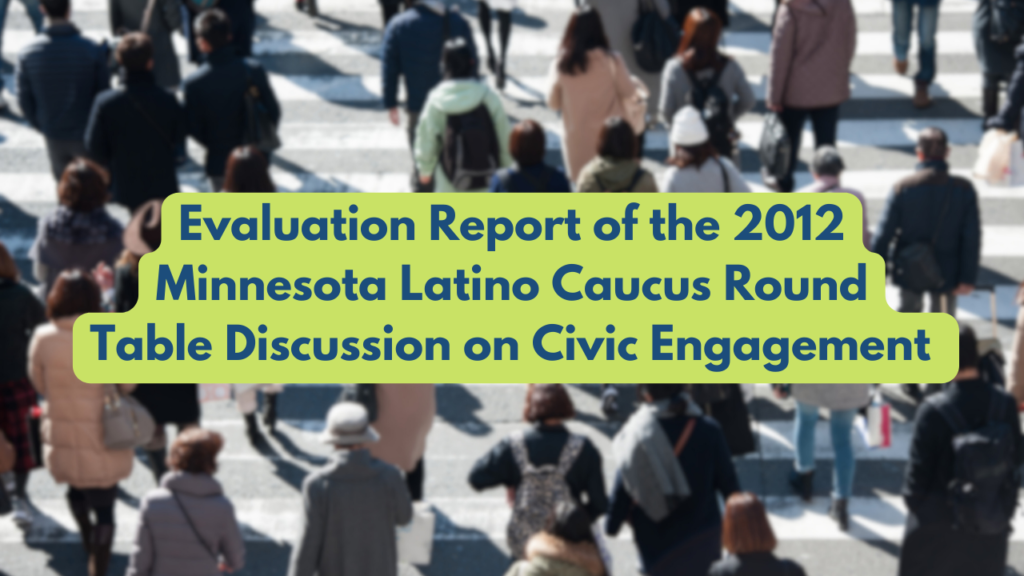
It was determined that one of the ways to accomplish MNLC’s goals was to organize a statewide roundtable of community leaders, activists and subject matter experts that would discuss the importance of civic engagement, lead training classes, and develop regional action plans to show how each region was going to promote civic engagement. Latino civic engagement is important for the following reasons:
- The Latino population is rapidly growing. According to the 2010 Census, there are over 250,000 Latinos in Minnesota, which equals almost 5% of the state population. Between 1990 and 2010, the approximate annual growth rate of the Hispanic and Latino community is approximately 18.2%. Figure 1 shows the population distribution and growth rate of the Hispanic and Latino population in Minnesota. A number of maps and other data from the latest Census showing population characteristics of the Hispanic/Latino population in Minnesota are inserted as appendices at the back of this report.
- Members of the rural areas are very interested in civic engagement but do not know how to get started or where to go for advice.
- At the time of the MNLC event, there were only four Latino elected officials, all of whom are located within the Twin Cities area: Senator Patricia Torres Rey, elected in 2010; Representative Carlos Mariani, elected in 2000; Anoka County Councilman Rafael Ortega, and Alberto Monserrate, Minneapolis School Board, elected in 2010. There are four new Latino candidates running for state offices in November 2012, all located in the Twin Cities.
- Currently, Latino civic engagement representation is not on par with the demographic composition in Minnesota. Latino interests are not adequately addressed in the current civic engagement process. Latinos face significant barriers in various sectors of the economy and society which also creates barriers to civic engagement.
- The vibrant entrepreneurship potential in Latino communities to create jobs and wealth for all has had minimum policy attention because of the lack of policy and political representation at all levels of government in Minnesota. Moreover, Latino communities throughout Minnesota face barriers to business, social, political, and educational success because their voice is largely absent in policy and institutions statewide, primarily in rural areas of the state.
